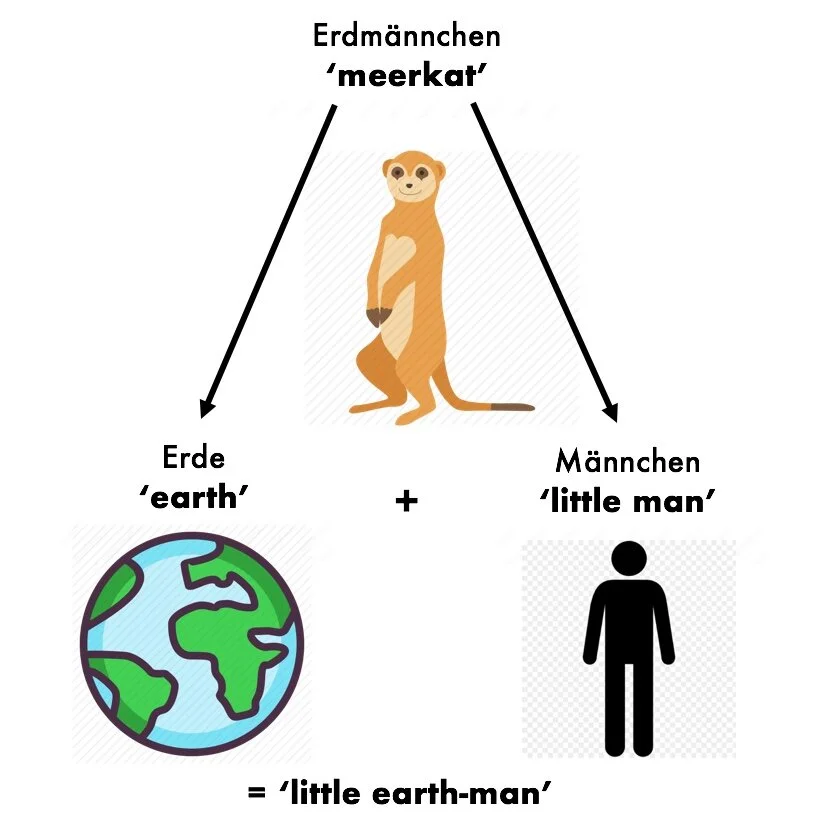Finding Romance (Languages)
Are Romance languages mutually intelligible? To investigate this question, the LanGo team hosted a series of multilingual conversation hours this summer called “Finding Romance (Languages)” and invited learners of any Romance language to join. The concept for these multilingual conversation hours was inspired by a video shared by a member of the LanGo community (h/t to LanGophile Brian!).
The conversation format: Each participant was asked to speak their Romance language of choice for the duration of the conversation hour. For example, one person might choose to speak only Italian, another Portuguese, another Spanish, another French, another Romanian, etc. We then ran a guessing game to see which words and phrases were mutually intelligible… or not!
Table 1 shows the list of words and phrases that participants came up with for the game. In the table, French pronunciations are shown in IPA and * denotes reconstructed forms. Note that the word ‘casino’ originated in Italian, and there is likely no Latin word for it. For the vocabulary for ‘silver’, words in blue indicate those with Latin ancestry and words in brown indicate those that are unconnected from Romance vocabulary.
Table 1. Words and phrases from our “Finding Romance (Languages)” conversation hour.
Which words and phrases were most easily understood by speakers of Romance languages and which were more difficult? Read on for our team-compiled list of noticings about what happened.
The View from Italy [ Luis ]:
What was easy: Though I am a native Spanish speaker, during this round of our multilingual conversation hours I was the token Italian speaker. During the Spanish portion of the guessing game I mostly stayed silent to challenge the others and keep the conversation fun for everybody. It was interesting, though, to see how Spanish and Italian compare.
Aside from Spanish, Portuguese was the easiest. This is probably because I’ve also spent a considerable amount of time studying Brazilian Portuguese in the past. To this day I have friends with whom I only speak Brazilian Portuguese so I can’t say I’ve been completely sheltered from the language.
What was challenging: Because I’ve had the least amount of exposure to Romanian, it was the most challenging for me, though French was a close second. It was even confusing at one point with the word for ‘food’ in Romanian mâncare. It sounds a lot like the verb mangiare, which is the Italian verb meaning ‘to eat.’ It’s so interesting how the noun in Italian sounds like the verb in Romanian, yet their meanings are still somewhat related! With French, it’s always been helpful for me to read it while I hear it at the same time to understand how the spelling relates to its pronunciation. This is probably because I’ve never formally studied the language before.
What I thought of the other languages: Romanian had some words that sounded like Italian words so they were easy to identify in context, but it was only every few words that I understood clearly. It definitely made me more curious about the language. I also feel like I understand French a little more every time I hear it.
The View from France [ Tyler ]
I started studying French at the age of 14, and took it continuously to age 20. When I started I had had two years of Latin, the mother of all Romance languages, so really I ought to title this, “The view from Ancient Rome, via a most pleasant sojourn in France.” Once you’ve learned unus, duo, tres, quattuor, quinque, and so on, their descendants un, deux, trois, quatre, cinq are easily remembered. Loss of word-final sounds is a major pattern in the development from Spoken Latin of the Roman Empire to what we now know as French. In its system of nouns Modern French is much simpler than its ancestor: Latin had 5 noun cases in 2 numbers, plus a special “vocative” form used for addressing someone, for a total of 11 logically possible forms of a standard noun. Modern French nouns, in contrast, have a singular form and a plural form, and that’s it, just like Modern English.
I must also confess, dear reader, that I have not remained entirely innocent of the other Romance languages. I lived in Germany from ages 10 to 20, and was fortunate to travel around Western Europe quite a bit. Spending most of the last two decades in Texas, I’ve also absorbed a good bit of Spanish. And on Duolingo I’ve spent some time with Portuguese, Romanian, and Italian.
The View from Latin America [ Marison ]
What was easy: Italian was the easiest for me to understand of the other Romance languages. It has many similarities to Spanish within the words, sounds and other linguistic structures. Even the cadence and rhythm have a familiar feel. Though I have never personally dedicated time to studying the language, my sister has been learning Italian and I have had some exposure as she enjoys discussing languages and discoveries while learning.
What was challenging: French was the most difficult of the other languages for me to understand, even though I started studying it this year. Written French has visual similarities to Spanish and the other Romance languages, but spoken French has the most unique sounds compared to the others, which I think is mostly agreed upon. Many written letters in French do not even get pronounced when spoken. The difficulty I encountered here has encouraged me to go back and study pronunciation a bit more and simultaneously read and listen to French to become more familiar with how spoken words are written. I have even made a dedicated French music playlist to expose myself to more spoken French (music is one of my favorite ways of practicing a language!) I hope to better understand French as we continue hosting multilingual conversation hours!
What I thought of other languages: I was very surprised by the amount of Romanian I understood. Up until our first multilingual conversation hour, I thought of Romanian as only a Slavic language. I was unaware that it also has Latin roots and is considered one of the Romance languages!
I highly expected to understand Portuguese better than I did. Like French, written Portuguese has similarities to Spanish, but the spoken language has many different sounds that made it difficult for me to understand. Even referencing the chart above that compares the different chosen words, Portuguese words look more like the Spanish equivalents than the words in Italian, even though the latter language was overall easier for me to comprehend.
The View from Latin America [ Levi ]
What was easy: I enjoyed hearing things which sounded similar to words I was familiar with and trying to resolve their meanings. This was usually pretty easy, for example: the Italian word for ‘word’ is parola, much like Sp. palabra, from Latin, parabola. In French, the meaning ‘word’ is mot, and then their cognate of palabra is the verb parler. These sorts of connections were somewhat easy to spot, but required more concentration in some languages than others.
What was challenging: I feel like listening to and understanding French is a very different skill than listening to and understanding some of these others. It sounds very different: many original letters have become silent (though they are still written) and many things that are present get resyllabified due to liaison, creating the illusion that they are different words. Nothing has helped me understand French like learning the spelling rules of this language under Tyler this spring. This has caused me to see the relationships between words more clearly, and has increased my comprehension of spoken French.
What I thought of the other languages: Romanian was very interesting to hear. This language has <p> where Latin had <c>, e.g. Romanian noapte from Latin noctem. Romanian has this interesting vowel written with a circonflexe as in mâncare ‘to eat. This vowel is something like [ə] or [ɨ]. Portuguese sounds really intriguing to me. It sounds really different to some of the other languages, for example, it has the dark l [ɫ] sound. I particularly like the palatalization that occurs. Italian was probably the easiest for me to understand after Spanish. It is very clear and keeps many things intact from Latin.
The View from Brazil [ Peter ]
What was easy: Spanish was the easiest language to understand with Italian as a close second. They seemed easy because the cognates were fairly easy to guess from my knowledge of Portguese spelling.
What was challenging: French cognates were the hardest to recognize because of the difference in vowels and lenition of final parts of words. Words that were not cognates were sometimes difficult to guess no matter which language.
What I thought of the other languages: I started learning Brazilian Portuguese over a decade ago when I met my partner, who is a native speaker. Growing up in Texas, I had been taught some Spanish during high school and had the opportunity to learn some at work, but I never achieved proficiency. I have had little or no exposure to French, Italian and Romanian, which were also spoken during the conversation hour.
From my perspective, Spanish was the easiest language to understand. I believe this may have been due in part to my exposure to Spanish throughout the years. Italian was the second easiest to understand, like Spanish, I could guess many of the words based on my knowledge of Portuguese writing. Some of the main differences are that Spanish often has an [s] pronunciation for intervocalic <s> while Portuguese has a [z] pronunciation as in the word for ‘house,’ spelled <casa> in both languages. Both Spanish and Italian seem to have preserved the word initial /r/, while Portuguese pronounces it as [h]. Knowledge of Portuguese spelling made these sorts of cognates transparent.
French and Romanian were both much harder to understand! It is not easy to say which was harder. Romanian cognates were not very frequent, but they were very recognizable. I would guess that cognates with French were much more frequent, but they were not easy to recognize due to changes in vowel quality and trochaic shortening. That is, French had a different stress pattern than Portuguese. Portuguese stress is generally penultimate, unless attracted by a heavy syllable. I have little knowledge of French prosody, but it seemed to have initial stress, which would explain why the ends of words were elided. In any case, French was very difficult to understand and I can’t say I understood a single sentence out of context.
The conversation hour made me very curious about French. I imagine that if a student learned Portuguese and French, that they would be able to communicate with any (patient) person in Western Europe.
CONCLUSION
We hope you’ve enjoyed our team perspectives on the mutual intelligibility of Romance languages. If you’re learning a Romance language, let us know if you’re interested in participating in future multilingual conversation hours. We’ll be running this experiment again soon!
































Tools for helping you master some of the trickier points of German grammar, whether you’re learning it for the first time or wanting to review the fundamentals. Los geht’s!